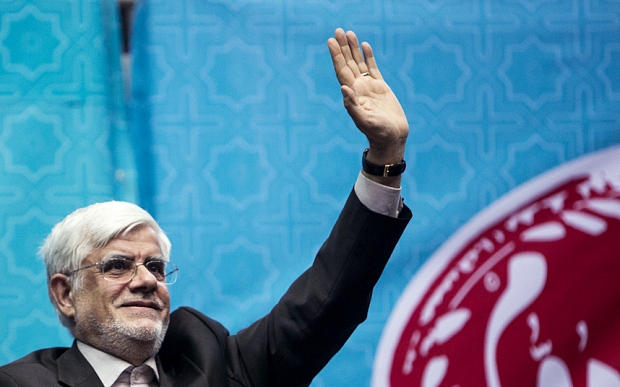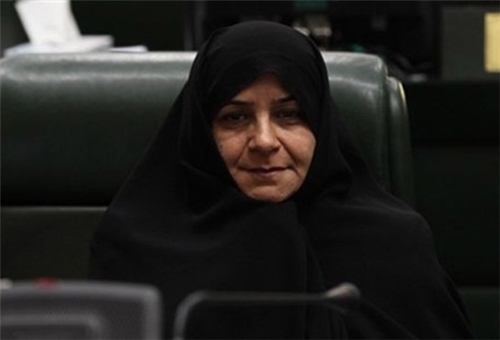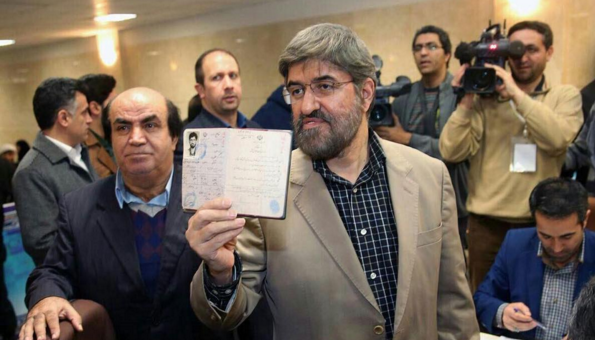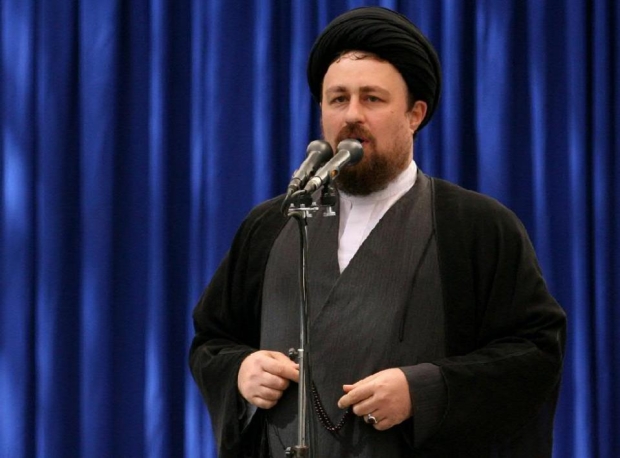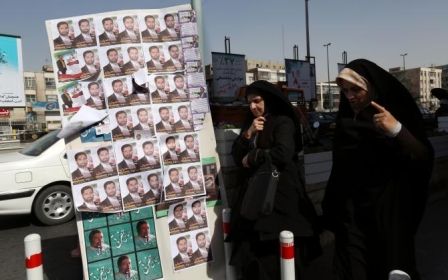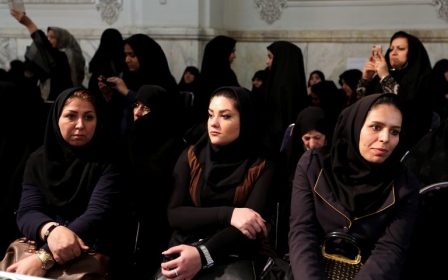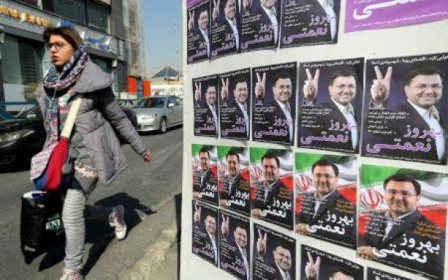Iran elections: Who to watch out for
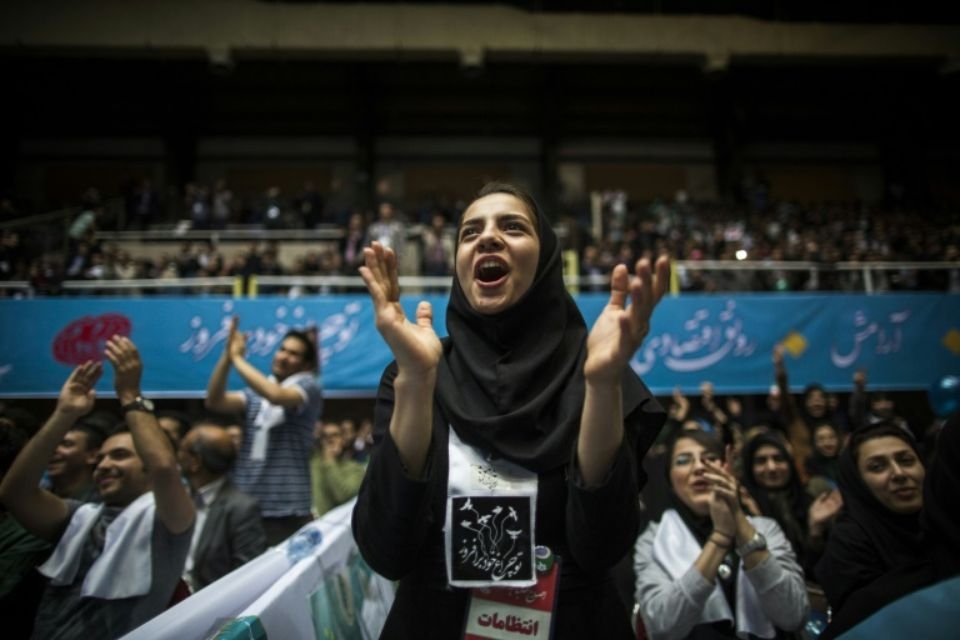
A message addressed from President Rouhani arrived in the inbox of every Iranian with a mobile phone on Wednesday: “The country needs your vote,” the message read, urging Iranians to “build the future of the country with plenty of hope,” in two polls being held on Friday.
Rouhani is far from the only politician to encourage high voter turnout. Supreme Leader Ali Khamenei has said participation will prove that Iran “stands firm against and defies the enemy”.
On the other end of the mainstream political spectrum, reformist frontrunner Mohammed Reza Aref this week implored Tehranis to stay in their hometown on Friday so they would not miss the opportunity to vote.
Around 55 million people are eligible to vote in what will probably be just the first round of parliamentary elections. Contenders need 25 percent approval to enter parliament and even after the last-minute withdrawal of over 1,300 candidates on Wednesday, there are still 17 hopefuls competing for each seat.
With such a crowded field of competition, few candidates are likely to reach the threshold in the first round. Friday’s other - potentially more significant - poll will select the 88 members of the Assembly of Experts, the clerical body that will select the next supreme leader after Khomeini – now 76 and in ill health – dies.
Friday marks the first parliamentary election since Rouhani came to power in 2013, and comes months after world leaders hammered out a historic nuclear deal lifting decades-long sanctions against Iran. The elections are being seen as a litmus test for that deal, which has so far failed to bring about the economic relief many had hoped for.
Inflation remains high at around 13 percent according to central bank figures, though it has fallen from around 40 percent in 2013. Youth unemployment, in a country where around 60 percent of the population is under 30, stands at 25 percent.
After just a week of campaigning, many Iranians are likely to decide their votes at the last minute on Friday. Here, Middle East Eye takes a look at candidates, approved and disqualified, from the most prominent electoral lists:
Mohammad Reza Aref
A former vice-president under former reformist leader Mohammad Khatami, Aref has spent the week-long campaigning window imploring young Iranians to vote. “I ask you, the youngsters, the students, to come onto the political scene as a duty,” Aref told a packed rally at Tehran University on Monday.
Aref holds a PhD in electrical and communication engineering from Stanford University in the US and has been a player in Iranian politics since 1981. Today he leads an electoral bloc dubbed the List of Hope, whose 30 members include eight women as well as several high-profile conservatives.
During Aref’s campaign rallies, supporters have expressed support for leaders of the Green Movement, a wave of protests that erupted in 2009 after a contested election eventually won by Mahmoud Ahmadinejad.
Media outlets in Iran were banned earlier this month from publishing photos of Khatami, who has been ostracised over his support for the movement’s imprisoned leaders. Mindful of the ban, Aref’s supporters have held aloft banners simply showing Khatami’s hands.
Fatemeh Alia
Alia, 60, is a well-known conservative politician, and is running again on the 30-member conservative list, the Grand Coalition of Principlists.
The group, headed by Gholam Ali Hadded-Adel, includes six women, and has been so called for its members' strict interpretation of the principles of the 1979 Islamic Revolution.
Of the nine women currently sitting in parliament, eight are from this bloc. Veteran politician Alia is one of these and has already served three terms in parliament.
In 2009, she was slated to become Iran’s first female cabinet member since 1979 when Ahmadinejad nominated her as head the Ministry of Education, but she did not make the cut in the end.
Known as a strict conservative, Alia last year called a member of Rouhani’s cabinet a “worn-out feminist”. During a debate over a ban on women entering sports stadiums in 2014, Alia said “[a] women’s duty is to raise children and take care of their husbands, not to watch volleyball games… women whose main concern is going to stadiums and finding a job and things like that would not be able to fulfil her duties”.
Ali Motahari
A well-known figure on the political scene, Motahari’s name actually features on two lists for the parliamentary election: the List of Hope and his own Voice of the Nation bloc.
During a campaign rally Motahari called for the “artificial wall” between moderate and hardline politicians to be pulled down and has said he formed his new bloc in response to “shortcomings” with both the reformist and principlist lists. He has previously criticised moderates for ignoring cultural considerations and hardliners for failing to call for greater freedoms. His blend of politically moderate and socially conservative stances has come to be known as moderate conservatism.
Hassan Khomeini
Khomeini is a grandson of the late Ayatollah Rohollah Khomeini, the first supreme leader of post-revolutionary Iran and still a towering figure of today’s political and religious landscape. The 43-year-old Hassan Khomeini became the first of the supreme leader’s grandchildren to gun for a senior political role when he threw his hat into the ring for the Assembly of Experts last December.
Khomeini backed President Hassan Rouhani in the 2013 elections and is considered a moderate. However, his candidacy was refused by the Guardian Council, the unelected body responsible for vetting candidates. The Guardian Council this month disqualified around half of the potential candidates, including up to 99 percent of the reformist hopefuls.
Khomeini’s disqualification was seen as a blow for those keen to introduce a reform-minded jurist – one who could even have the potential to become the country’s next supreme leader – into the Assembly of Experts. His disqualification was announced on Instagram by his son Ahmad, whose hugely popular account offers insight into the personal life of this prominent Islamic jurist. The Guardian Council did not explain why it had disqualified Khomeini, though Ahmad wrote that “the reason is clear to all”.
New MEE newsletter: Jerusalem Dispatch
Sign up to get the latest insights and analysis on Israel-Palestine, alongside Turkey Unpacked and other MEE newsletters
Middle East Eye delivers independent and unrivalled coverage and analysis of the Middle East, North Africa and beyond. To learn more about republishing this content and the associated fees, please fill out this form. More about MEE can be found here.


